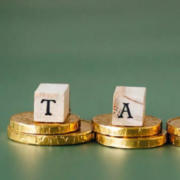How can I withdraw my superannuation?
Table of Contents
ToggleAre you looking to access your superannuation? Accessing your super – also known as withdrawing it – can be a complicated process, but with the right information it doesn’t have to be. We’ve created this guide so you know exactly how and when you can withdraw your hard-earned funds without any additional stress or worry.
This blog post will provide an overview on everything you need to know about withdrawing your retirement savings so that you make informed decisions regarding the best way to access them. Let’s jump in!
What age can I withdraw my superannuation?
Superannuation, or “super” for short, is a retirement savings scheme in Australia. It is a legal requirement for Australian employers to contribute a portion of their employees’ salaries to their super accounts. Now, when can you withdraw your hard-earned super savings?
The ATO website states that you are eligible to withdraw your super in three situations:
- when you turn 65 (regardless of whether or not you retire)
- when you retire after reaching your Preservation Age
- when you continue working under the transition-to-retirement rules.
You can only access your super early under specific circumstances. Read on to learn these circumstances.
Please note that your preservation age and pension age are not the same.
Your preservation age refers to the age at which you may access your superannuation if you have either retired or started a transition to a retirement income stream. If you would like to learn about the eligibility requirements for age pension, please refer to Services Australia.
To determine your preservation age, you should refer to the provided table that varies based on your birth year.
Preservation age based on date of birth
| Date of Birth | Preservation Age |
|---|---|
| Before 1 July 1960 | 55 |
| 1 July 1960 – 30 June 1961 | 56 |
| 1 July 1961 – 30 June 1962 | 57 |
| 1 July 1962 – 30 June 1963 | 58 |
| 1 July 1963 – 30 June 1964 | 59 |
| From 1 July 1964 | 60 |
However, there are also other certain conditions that need to be met before you can access your super such as retirement, severe financial hardship or a terminal medical condition. It’s important to also consider that withdrawing your super too early can result in a hefty tax bill, so it’s best to seek professional advice before making any decisions.
How much can I withdraw from super tax free?
If you’re wondering about how much you can withdraw from your super tax-free, the answer depends on your age, your account balance, and your eligibility for government benefits.
If you are 60 years or older and withdraw a lump sum of money from a taxed super fund:
- you will not have to pay any taxes.
- If you withdraw the same lump sum from an untaxed super fund, like a public sector fund, you may have to pay taxes.
If you’re below 60 years old and withdraw a lump sum from your savings:
- you won’t have to pay taxes as long as you don’t withdraw more than $235,000, which is called the ‘low rate threshold‘.
- if you withdraw more than that amount, you will be taxed at the rate of 17%, which includes Medicare levy, or the lowest marginal tax rate, whichever is applicable.
If you choose to withdraw your money before reaching your preservation age:
- you will incur a tax of 22% including the Medicare levy, or your lower marginal tax rate.
It’s important to consult with a professional financial advisor to ensure you understand your options and make the most of your super. With proper planning and guidance, you can optimise your retirement income and enjoy a comfortable lifestyle in your golden years.
How can I withdraw my superannuation?
If you’re looking to withdraw your superannuation in Australia, there are a few important steps you’ll need to follow.
- Firstly, you’ll need to determine your eligibility to access these funds, as there are specific conditions you need to meet.
- Once you’re eligible, you’ll need to complete the necessary forms and provide relevant documentation to your superannuation fund.
- From there, you can choose how you’d like to receive your funds, either in a lump sum, as regular payments, or a combination of both. Check with your fund to find out what options are available to you.
The option you select for withdrawing your super may impact the tax amount you will have to pay and the total amount of money that you will have for your retirement.
Superannuation Income Stream Withdrawal Rules
Your super fund will pay you a regular income stream at least once a year. The payments will continue for a specific period of time and must meet the minimum annual payment requirements for super income streams.
Retirees often choose super income streams as an investment option to better manage their income and expenses. These income streams may also be referred to as pensions or annuities.
You can receive your super income stream in two ways:
- account-based income stream
- non-account-based income stream.
Your super income stream will come to an end in the following situations:
- If there is no money remaining in your super account
- If you fail to make the minimum annual payment
- If you convert your super income stream into a lump sum payment (commutation)
- If you pass away, unless you have a dependent beneficiary who can receive the income stream automatically.
Superannuation Lump Sum Withdrawal Rules
If your superannuation fund permits, you may be eligible to receive a lump sum payment, which allows you to withdraw all or some of your superannuation in one payment.
If you choose to take out your super in multiple lump sums, that is possible. But if you request your fund to arrange periodic payments from your super, it will be classified as an income stream.
When you withdraw a lump sum from your superannuation, that money no longer falls under the category of superannuation. If you use that money for investments, any income earned from those investments will not be subject to superannuation tax and may require you to report it in your tax return.
It’s crucial to seek professional advice before making any decisions, to ensure you’re making the best choice for your individual circumstances. With the right guidance, withdrawing your superannuation can be a smooth and stress-free process.

Withdrawing Super Early
Accessing your superannuation before the regular age limit is only possible in very specific circumstances, usually related to specific expenses.
Access due to severe financial hardship
If you are experiencing severe financial hardship, please note that the ATO does not handle requests for accessing your super. You should get in touch with your super provider to apply for the release of your super.
If you are going through a situation where you are facing significant financial difficulties, you might have the option to withdraw a portion of your super.
If you withdraw money from your superannuation fund due to severe financial hardship, there are no special tax rates applied.
If you make a withdrawal from super, it will be taxed as a regular lump sum. If you’re:
- under 60, the tax rate is usually between 17% and 22%.
- over 60, you won’t have to pay any tax.
Access due to terminal medical condition
If you have a terminal medical condition, it is possible that you may have access to your superannuation.
To be considered as having a terminal medical condition, you must meet the following criteria:
- Two registered medical practitioners, one of whom must specialise in your illness or injury, have certified that you have an illness or injury that will likely cause your death within 24 months from the date of the certification.
- The 24-month certification period is still ongoing.
To receive your superannuation due to a severe medical condition, get in touch with your superannuation fund. They are obligated to pay your super as a lump sum. If you withdraw it within 24 months after receiving the certification, the payment will not be taxed.
If you have a terminal medical condition and your current fund does not allow access to your super, you might be eligible to transfer your super to another fund.
If you have a terminal medical condition and your super is held by the ATO, you can either:
- ask your provider to make the claim on your behalf
- make the claim directly from the ATO yourself.
Access due to temporary incapacity
If you have a physical or mental medical condition that temporarily prevents you from working or necessitates that you work fewer hours, you might be able to use your super to help.
This release condition is typically utilised for accessing insurance benefits that are linked to your superannuation account.
If you are unable to work for a while due to temporary incapacity, you can request access to your super. You will receive the super as regular payments or income stream. It’s important to note that withdrawal of super due to temporary incapacity is subject to taxation just like a super income stream. To learn more about the insurance implications of your account, get in touch with your super provider.
Withdrawals from superannuation due to temporary incapacity do not qualify for any special tax rates.
If your super account does not provide insurance benefits, you should check if you are eligible for access due to severe financial hardship.
Access due to permanent incapacity
If you have a permanent incapacity, you may have the option to withdraw your superannuation. This type of withdrawal is referred to as a ‘disability super benefit‘.
In order for your fund to grant you assistance, they need to be certain that you have a permanent physical or mental medical condition that would prevent you from working in a job related to your education, training, or experience.
If you’re working in a different position with lighter duties or in a different field as a casual worker, you may still be able to withdraw your super when you meet the eligibility criteria mentioned earlier.
You have the option to receive the superannuation as a lump sum or in the form of regular payments, which is also known as an income stream.
To receive concessional tax treatment for a super withdrawal due to permanent incapacity, you must be certified as permanently incapacitated by at least 2 medical practitioners. Different tax components apply in this case.
If you have become permanently incapacitated and want to access your super, you should get in touch with your provider. To determine the tax implications of your super payment, you’ll need to know the following information about your super account:
- the tax-free component
- the taxable component on which your super provider has paid tax (taxed element),
- the taxable component on which your super provider has not paid tax (untaxed element).
If you’re receiving a disability benefit as an income stream and you are below your preservation age, you will receive tax offsets. These offsets will reduce the tax rate on the taxed element of your taxable component by 15%.
The disability benefit will be taxed at the rates mentioned in “How tax applies to your super” if you reach your preservation age or receive a lump sum.
You can apply to get back the money you voluntarily put into your super fund for your first home, as long as you meet the eligibility requirements. This includes both before-tax contributions and after-tax contributions you made since 1 July 2017.
Under the first home super saver scheme, you can request to release up to $15,000 of your voluntary contributions from a single financial year, as long as the total amount of eligible contributions does not exceed $50,000 across all years. Additionally, you will receive the earnings related to those contributions.
To find out more about the situations in which you may be able to access your superannuation early, please visit the ATO website.

Withdrawing super to pay debt
If you have reached your superannuation preservation age, it is possible to use your superannuation funds to pay off your debts.
Once you reach your preservation age and continue working, you can access your superannuation by starting a transition to retirement pension. This allows you to withdraw up to 10% of your account balance every fiscal year. If you are over the age of 60, you won’t pay tax on the pension income. However, if you’re under the age of 60, you may be required to pay tax on the pension income.
Once you reach your preservation age and satisfy the conditions of retirement for superannuation purposes, or if you are over 65 years old, you have unrestricted access to your entire superannuation savings. You can withdraw as much as you need to pay off debts without any limitations.
It’s important to seek professional advice before making any decisions and consider all your options to find the best solution for your individual circumstances.
Withdrawing super before leaving Australia
If you’re planning on leaving Australia for good or an extended period of time, you may be wondering about your super. Withdrawing your super before leaving the country is possible, but it’s important to understand the rules and regulations surrounding the process. It’s essential to have a plan in place before taking any action, as withdrawing your super early could have long-term consequences on your retirement funds.
As a professional and reliable resource, we can guide you through the process and answer any questions you may have. Don’t leave the fate of your retirement funds to chance, let us help you take control of your financial future.
Things to consider before withdrawing your superannuation
Superannuation is an essential aspect of the Australian workforce, providing a means of financial support for retired individuals. However, in times of financial hardship, it may be tempting to withdraw from your superannuation funds early. Before making this decision, there are several factors that must be taken into consideration.
- Evaluate the potential impact on your retirement savings and overall financial stability.
- Be aware of potential tax implications and any associated fees.
- It may be worth exploring alternative options, such as accessing government financial support, before making the decision to withdraw from your superannuation.
By carefully weighing these factors, you can make an informed decision that ensures the best possible financial outcome for you and your future.

Understanding the rules surrounding withdrawal from superannuation is essential, especially if you’re considering it as an option for retirement income or to pay off debt. Keep in mind that withdrawing your super early could mean a smaller nest egg later on in life and tax implications should be considered as well. In some cases, it might be beneficial to wait and access the funds at later stages instead of prematurely. It’s important to do your research and think things through because super is typically one of your largest financial assets.









